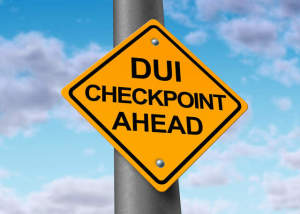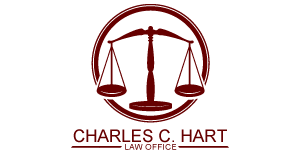Driving under the Influence and DUI case and the Right to Remain Silent
A discussion of a Driving under the Influence Attorney, Driving under the Influence Lawyer, DUI Attorney, and DUI Lawyer and Berkemer v. McCarty in Driving under the Influence and DUI cases: Driving under the Influence and DUI case and the Right to Remain Silent
As a Driving under the Influence Attorney, Driving under the Influence Lawyer, DUI Attorney, and DUI Lawyer I am often asked about Driving under the Influence and DUI case and the Right to Remain Silent. Driving under the Influence or DUI is one of the most serious crimes you can commit, even though it is a misdemeanor, because it ultimately carries two penalties. The first penalty in a Driving under the Influence or DUI case is the penalty of the criminal court and the second penalty in a Driving under the Influence or DUI case is a penalty given to the driver from the Florida Department of Highway Safety and Motor Vehicles. However, ultimately, the penalties from both the criminal court and the Florida Department of Highway Safety and Motor Vehicles could result in the suspension or at least the curtailment of your driving privilege. In fact, in some cases, the penalty of a driver’s license suspension is mandatory and required by law; this means under certain circumstances the court must suspend your driver’s license no matter what.
Think of it, how often do you drive each day? If you lose your driving privilege, how would you get to work, get home from work, go to the doctor, get groceries, go relax on your time off, etc.? Frankly, if you are convicted of the crime of Driving under the Influence you may not be driving any car legally for quite awhile. So perhaps, now you can see why a Driving under the Influence or DUI case can be one of the most serious crimes you can commit.
Driving under the Influence Attorney, Driving under the Influence Lawyer, DUI Attorney, and DUI Lawyer and Driving under the Influence and DUI case and the Right to Remain Silent ?
However, what is perhaps the most misunderstood subject of a Driving under the Influence or DUI case and the right to remain silent is that you do not necessarily “get” what we expect and have been “educated” by TV as our right to remain silent to receive in a criminal case; a Miranda warning. The United States Supreme Court ruled in Berkemer v. McCarty, 468 U.S. 420 (1984) that incriminating statements made by a motorist at a county jail following arrest for misdemeanor traffic offense were inadmissible where motorist, who was “in custody” at least as of moment he was formally placed under arrest and instructed to get into police car, was not informed of his constitutional rights BUT roadside questioning of a motorist detained pursuant to a routine traffic stop does not constitute “custodial interrogation” for purposes of Miranda rule.
What does this mean? It means you get your Miranda warning when you are under arrest; if the police violate this, your statements are illegally obtained evidence and the Government should excluded from using those statements against you in the criminal prosecution (the statements are “suppressed”). More clearly, the police have an obligation to warn you and tell you that you have a right to remain silent after they arrest you. However, generally, for the purposes of stopping you on the side of the road for a “routine traffic stop”, while you do have a right to remain silent, the police have no obligation to tell you that you have a right to remain silent or warn you what you say can be used against you in a criminal prosecution.
What this generally means, is after stopping you for speeding, a headlight out, swerving, squealing tires, etc., the police can approach you, talk to you, and ask you a “modest number of questions”. Worse, the police can ask you to perform a “simple balancing test at a location visible to passing motorists” (otherwise, known as field sobriety exercises) and that not be a violation of your Miranda rights and right to remain silent. I cannot even begin to tell you the number of common people I have met charged with a Driving under the Influence or DUI case who just took the field sobriety exercises thinking it would show they were not impaired and not guilty only to find themselves in jail thirty minutes later.

In Driving under the Influence or DUI cases, because people are either scared or do not know their rights people do not exercise them. In my experience, as a Driving under the Influence Attorney, Driving under the Influence Lawyer, DUI Attorney, and DUI lawyer, often by the time a fellow American remembers his or her rights, he or she is sitting in jail charged with a DUI and it is too late.
Meanwhile, the police can escalate an encounter into an arrest or the functional equivalent of an arrest. Did the police block you in? Did the police put you in handcuffs? Did the police use a tazer on you? Did the police officer draw his firearm? Did the police order you to do something so you felt compelled to do so because you had no choice? Did the police confront you with evidence of a crime in a manner they knew (or should have known) would illicit incriminating statements?
What can a Driving under the Influence Attorney, Driving under the Influence Lawyer, DUI Attorney, and DUI Lawyer do for me in a Driving under the Influence and DUI Case and the Right to Remain Silent ?
As such, the difference between a “routine traffic stop” and an arrest is a very important distinction; especially if you are like the millions of people who try to talk their way out of their problem or blindly agree to talk to the police or complete the field sobriety exercises.
This analysis between “routine traffic stop” and arrest depends almost entirely dependent on the facts of your case and having an experienced and skilled Driving under the Influence Attorney, Driving under the Influence Lawyer, DUI Attorney, and DUI Lawyer apply the law to those facts.
Now, as I said, the difference between a “routine stop” and an arrest is too large and too factually sensitive to fully discuss right now; however, if you have been arrested for Driving under the Influence or DUI and now have a Driving under the Influence or DUI case you probably will want to talk to a Driving under the Influence Attorney, Driving under the Influence Lawyer, DUI Attorney, and DUI Lawyer right now in order to sort this problem out.
A final word on Driving under the Influence and DUI case and the Right to Remain Silent
A Driving under the Influence Attorney, Driving under the Influence Lawyer, DUI Attorney, and DUI Lawyer can analyze your Driving under the Influence or DUI case and argue for the factually diverse but very significant differences between a “routine traffic stop” and an arrest. Feel free to contact Charles Hart, a Driving under the Influence Attorney, Driving under the Influence Lawyer, DUI Attorney, and DUI Lawyer at 321-363-4959 for a free consultation and review of your Driving under the Influence or DUI case.
Read the full text of Berkemer v. McCarty here: https://supreme.justia.com/cases/federal/us/468/420/case.html
Call Charles C. Hart II, P.A. at 321-363-4959 for legal help with your Driving under the Influence or DUI case.
***This is not legal advice nor does reading this information create an attorney-client relationship between the reader and Charles C. Hart II, P.A. Keep in mind, the things an attorney can do and the action an attorney may take are dictated by the individualized facts of a case and always case specific. Essentially, what any attorney may do as your attorney depends on the attorney’s skill and expertise. Also, reasonable minds differ, one attorney may say one thing and another may disagree. In any event, please keep in mind, legal expertise comes from schooling, courtroom experience, and practicing as an attorney and not by reading a website. Use this information at your own risk.***
